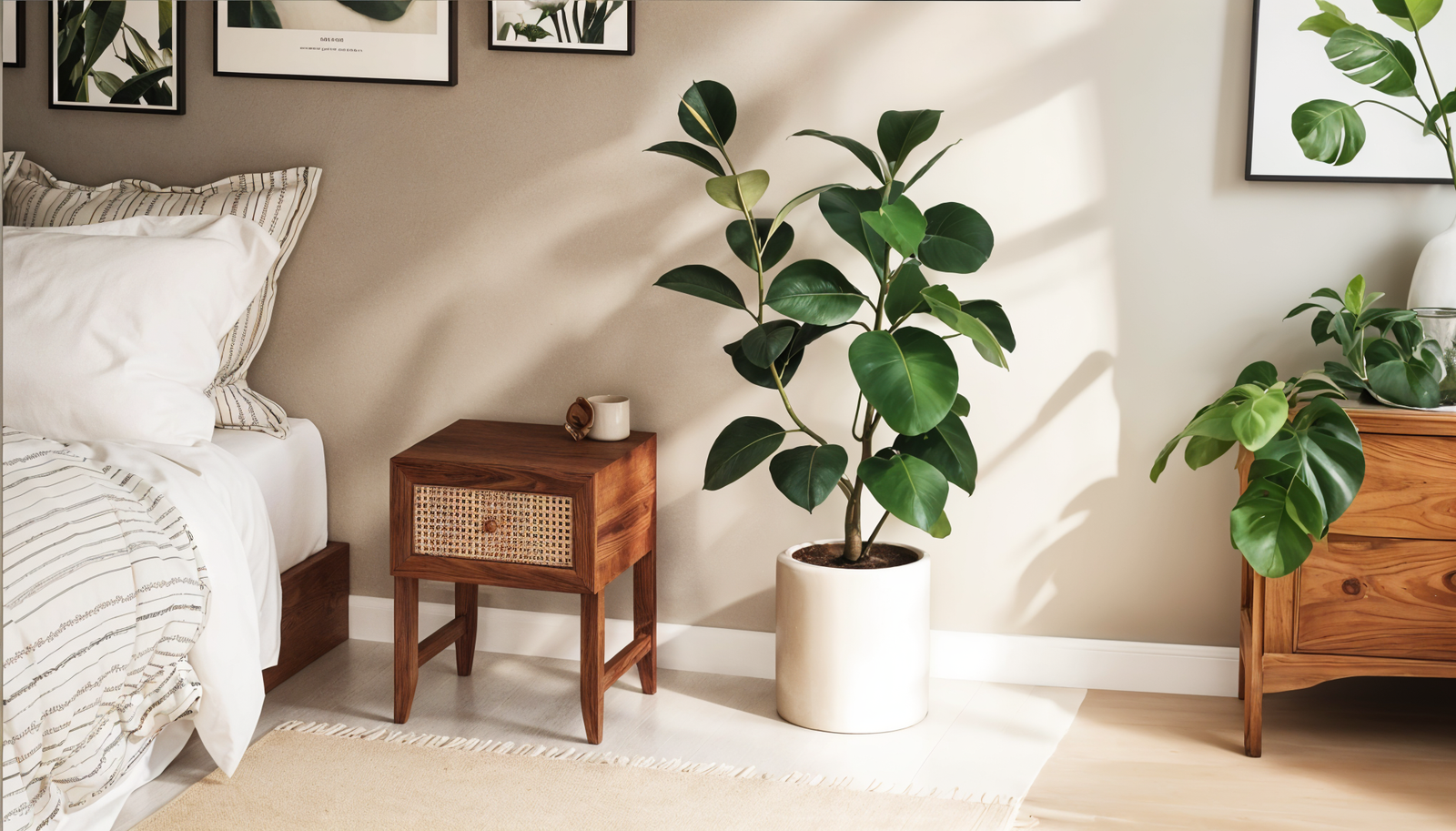🤍 Unmatched Quality, Authentic Craftsmanship
🤍 Unmatched Quality, Authentic Craftsmanship
🤍 Unmatched Quality, Authentic Craftsmanship
Welcome to our exploration of Japandi room divider ideas! If you're looking to add a touch of elegance and functionality to your home, Japandi room dividers offer the perfect solution.
These dividers combine Scandinavian and Japanese design elements to create a serene and harmonious atmosphere.
Whether you want to define different zones in an open-concept space or add privacy to a room, Japandi room dividers provide a minimalist and stylish option.

In this section, we will delve into the philosophy of Japandi interiors, which emphasizes calmness and elegance in design.
The Japandi aesthetic combines the simplicity and functionality of Scandinavian design with the minimalism and harmony of Japanese design, resulting in spaces that exude tranquility and sophistication.
Japandi interiors are all about creating a serene and peaceful atmosphere.
The design philosophy revolves around minimalism, clean lines, and a subdued color palette.
By embracing simplicity, Japandi interiors promote a sense of calmness that allows for relaxation and mindfulness in our daily lives.
With a focus on natural light and open spaces, Japandi interiors invite clarity and balance into our homes.
The use of neutral tones, such as whites, beiges, and grays, in combination with organic textures and materials, further enhances the peaceful ambiance.
Japandi interiors prioritize the use of eco-friendly materials, reflecting a deep respect for nature and sustainability.
Wood, particularly light-toned and natural finishes, is a key element in Japandi design.
It brings warmth and a connection to the natural world, making spaces feel grounded and inviting.
Rattan, a traditional Japanese material, is also commonly found in Japandi interiors, especially in furniture and room dividers.
It adds a touch of organic beauty and brings a rustic charm to the overall aesthetic.
Incorporating these eco-friendly materials not only aligns with the Japandi philosophy but also contributes to a healthier and more environmentally conscious lifestyle.
Incorporating Japandi room divider ideas into your home requires careful consideration to optimize space and functionality.
By strategically dividing rooms, you can create distinct areas while maintaining the overall Japandi aesthetic.
One effective way to strategically use Japandi room dividers is to define different zones within an open-concept space.
Use a room divider to separate the living area from the dining area or create a cozy reading nook in a larger room.
This helps to visually separate the spaces while still maintaining a sense of openness.
Another strategic use of Japandi room dividers is to add privacy to a room without sacrificing the aesthetic.
For example, you can use a room divider to create a separate work area in a bedroom or a dressing area in a studio apartment.
This provides both functionality and privacy while still blending seamlessly with the Japandi style.
To inspire you in your strategic use of japaese and minimalist room divider ideas, here is an image showcasing a beautiful Japandi room divider in action:

By strategically incorporating Japandi room divider ideas into your home, you can optimize space, create functional areas, and achieve a harmonious balance between aesthetics and functionality.
Incorporating Japandi design principles into room dividers allows for a perfect blend of functionality and aesthetics.
This section will explore how Japandi influences the combination of these two essential elements, resulting in innovative room divider solutions that elevate the overall design of your space.
Japandi design embraces the concept of minimalism while focusing on creating a harmonious and functional environment.
When it comes to room dividers, Japandi-inspired solutions offer both versatility and style.
One popular choice is the Japanese shoji screen, known for its elegant and timeless appeal.
These translucent sliding panels serve as a beautiful partition while allowing natural light to permeate through, creating a bright and open atmosphere.
The use of Japanese shoji screens not only separates spaces but also adds a touch of traditional Japanese craftsmanship to your interior.
The design of Japanese shoji screens goes beyond their visual appeal.
They are specifically crafted to optimize the use of natural light and create a sense of spaciousness.
With their delicate wooden frames and translucent paper panels, shoji screens allow light to filter through, giving your space a soft and soothing glow.
Japanese shoji screens can be used in various settings, from open concept living areas to bedrooms and home offices.
They provide the perfect balance between privacy and openness, allowing for a seamless flow between different spaces.
In addition to Japanese shoji screens, modern room dividers offer a contemporary twist on Japandi design.
Wood slat panels, with their clean lines and natural textures, bring warmth and sophistication to any space.
These dividers can be used to delineate different areas while maintaining an open and airy feel.
For a touch of organic beauty, grasscloth wallcoverings provide a unique and textured backdrop.
Made from natural fibers, grasscloth adds depth and visual interest to your interior.
Whether used as a full-height divider or as an accent feature, grasscloth wallcoverings contribute to the overall Japandi aesthetic.
By exploring these innovative room divider solutions, you can achieve the perfect balance between functionality and design in your space.
Incorporating Japanese room dividers, shoji screens, wood slat panels, or grasscloth wallcoverings will not only divide your rooms effectively but also infuse your home with the elegant and serene ambiance of Japandi style.
| Innovative Room Divider Solutions | Japanese Shoji Screens | Modern Room Dividers |
|---|---|---|
| Provides versatility and style | Offers elegance and timeless appeal | Brings warmth and sophistication |
| Creates a harmonious and functional environment | Optimizes the use of natural light | Adds organic beauty and texture |
| Allows for a seamless flow between spaces | Provides privacy without compromising openness | Contributes to the Japandi aesthetic |
In this section, we will explore the exquisite world of Japanese-inspired room dividers and how they can help create a tranquil and serene ambiance in any space.
Japanese aesthetics are renowned for their emphasis on natural materials, minimalistic elements, and traditional craftsmanship, all of which contribute to a sense of tranquility and harmony in interior design.
Japanese inspired room dividers are more than just functional pieces; they are art forms that blend seamlessly into any decor style.
With their clean lines, understated elegance, and thoughtful designs, these dividers provide both privacy and beauty to your space.
One of the key aspects of Japanese aesthetics is the use of natural materials.
Japanese inspired room dividers often incorporate materials such as wood, bamboo, rice paper, and screen panels made from washi, a traditional Japanese paper.
These materials not only evoke a sense of nature but also create a warm and inviting atmosphere.
In addition to the choice of materials, minimalistic elements are integral to Japanese-inspired room dividers.
The design is focused on simplicity, with clean lines and uncluttered spaces.
This simplicity not only promotes a sense of calmness but also allows the dividers to seamlessly integrate with different interior styles.
Traditional Japanese craftsmanship is another hallmark of Japanese inspired room dividers.
Skilled artisans employ centuries-old techniques to create intricate patterns, motifs, and textures in the dividers.
These details add depth and visual interest, further enhancing the overall tranquility of the space.
Incorporating Scandinavian room dividers into your space can infuse it with a sense of minimalist elegance that perfectly complements the Japandi aesthetic.
Scandinavian design is renowned for its clean lines, functional beauty, and emphasis on natural materials.
By integrating Scandinavian minimalism with Japandi room dividers, you can create a harmonious and serene atmosphere in any room.
Scandinavian minimalism and Japandi style share a common focus on simplicity and functionality.
By combining these two design philosophies, you can achieve a cohesive and balanced look in your space.
Scandinavian minimalist room dividers often feature sleek lines and versatile designs that seamlessly blend with the Japandi aesthetic.
Whether you opt for a room divider made of light-toned wood or a minimalist screen with clean geometric patterns, Scandinavian room dividers can effortlessly integrate with the overall Japandi interior.
The key is to embrace the understated elegance and timeless appeal that Scandinavian design offers while also embracing the tranquility and balance of Japandi style.
One of the hallmarks of Scandinavian design is its emphasis on functionality without compromising beauty.
Scandinavian room dividers often feature sleek lines and a minimalist approach to form, allowing them to serve their purpose while adding to the overall aesthetic of the room.
These dividers are designed to blend seamlessly with the surrounding decor, making them versatile and adaptable to various interior styles.
In terms of color palettes, neutral tones are a staple in both Scandinavian and Japandi design.
Shades of white, gray, and beige create a calm and soothing atmosphere, enhancing the sense of tranquility in the space.
By choosing a Scandinavian room divider in these neutral hues, you can maintain the cohesive and minimalist look while enhancing the Japandi aesthetic.
Here is an image showcasing the minimalist elegance of Scandinavian room dividers:
| Scandinavian Room Dividers | Description |
|---|---|
 |
A wooden room divider with clean lines and a light finish, adding warmth and elegance to any space. |
 |
A fabric room divider featuring a minimalistic design, providing privacy while maintaining an airy feel. |
 |
A modular room divider made of metal and glass, offering a contemporary and versatile solution for dividing spaces. |
Scandinavian room dividers bring not only visual appeal but also functional beauty to your interior.
Their sleek lines and neutral palettes contribute to a clean and uncluttered space, allowing the Japandi aesthetic to shine through.
In compact living spaces, it's essential to maximize every inch of your home.
Japandi style dividers provide a practical and aesthetically pleasing solution for creating distinct areas while optimizing space.
Let's explore some creative approaches to room divisions in compact living and discover how to choose the right Japandi room divider for your space.
When working with limited space, it's crucial to think outside the box and find innovative ways to divide your rooms.
Here are a few creative approaches to consider:
By adopting these creative approaches to room divisions, you can optimize your small space while retaining the elegance and functionality of Japandi style dividers.
When selecting a Japandi room divider, there are several factors to consider:
By carefully considering these factors, you can choose the right Japandi room divider that enhances your small space, adding both functionality and style.
| Benefits | Considerations |
|---|---|
| Maximizes small spaces | Requires careful measurement |
| Creates distinct areas | Choosing the right material and finish |
| Enhances the Japandi aesthetic | Functionality and purpose |
| Offers flexibility and versatility | Integration with existing elements |
Incorporating rattan dividers into your home is a wonderful way to create a seamless Japandi experience.
Rattan is a popular material in Japandi design due to its natural and organic aesthetic.
It's warm tones and tactile texture instantly evoke a sense of tranquility and earthiness, making it the perfect choice for enhancing the overall Japandi ambiance and style.
There are various ways to use rattan dividers to achieve a seamless Japandi look:
To visualize how rattan dividers can enhance your Japandi-inspired home, take a look at the image below:

| Benefits of Using Rattan Dividers in Japandi Design | Example |
|---|---|
| Enhanced Aesthetic | Rattan dividers bring a touch of natural and organic beauty to your Japandi-inspired space. |
| Flexible and Lightweight | Rattan dividers are easy to move and reposition, allowing for flexibility in interior design. |
| Privacy without Isolation | Rattan dividers offer a level of privacy while still maintaining an open and connected feel between spaces. |
| Texture and Visual Interest | The interwoven texture of rattan creates visual depth and adds an interesting element to the overall design. |
When incorporating Japandi room dividers into your space, it's essential to consider design elements that evoke a sense of Zen.
By paying attention to color schemes and textures, you can create a harmonious and tranquil ambiance in line with Japandi design principles.
Here are some tips to help you achieve the perfect balance:
In Japandi design, color schemes tend to be understated and rely on a neutral palette to create a serene atmosphere.
Embrace muted hues such as soft grays, warm browns, and pale whites.
These colors can be combined with subtle pops of muted blues or greens to add depth to the space.
Additionally, consider incorporating natural textures like wood, rattan, and linen to enhance the organic and soothing feel of the room dividers.
Accessorizing your Japandi room dividers can elevate their aesthetic and bring a sense of life into the space.
One way to achieve this is by incorporating plants and greenery.
Choose low-maintenance options like bamboo or bonsai trees to add a touch of nature to the room divider.
You can also adorn the dividers with fabric panels or curtains, using lightweight and sheer materials to maintain the minimalist and airy Japandi look.
Additionally, consider adding small decorative elements like ceramic vases, woven baskets, or artwork that aligns with the Japandi aesthetic.
By following these design tips, you can enhance the Zen-like qualities of your Japandi room dividers.
Remember to maintain a sense of simplicity, balance, and tranquility throughout your space to fully embrace the Japandi aesthetic.
When it comes to incorporating Japandi room dividers into your home, finding high-quality and stylish options is crucial.
In this section, we will guide you on where to find your perfect Japandi room dividers, ensuring they not only elevate your space but also align with your sustainable values.
One excellent option for sourcing sustainable Japandi furniture is Mojo Boutique.
This reputable retailer offers a wide range of room dividers that embody the elegant and minimalist Japandi aesthetic.
With a commitment to sustainability, Mojo Boutique curates a collection of dividers made from eco-friendly materials, ensuring both style and environmental responsibility.
If you prioritize sustainable choices in your home decor, exploring Mojo Boutique's selection of Japandi room dividers is a must.
Now that you have read the above article, maybe you still have a couple of questions on this topic, so we will answer these questions below.
Japandi room design is a fusion of Scandinavian and Japanese design elements, creating a serene and harmonious atmosphere.
It combines the minimalistic elegance of Scandinavian style with the calming simplicity of Japanese aesthetics.
Japandi room dividers often incorporate eco-friendly materials such as wood and rattan.
These natural elements complement the minimalist and organic aesthetic of Japandi design.
Japanese shoji screens and modern dividers like wood slat panels and grasscloth wallcoverings are popular choices in Japandi design.
They maximize natural light and space while maintaining the minimalist and elegant aesthetic.
You can find sustainable Japandi furniture, including room dividers, at Mojo Boutique.
They offer a curated selection of eco-friendly pieces that align with the Japandi aesthetic.
Additionally, you can explore online and offline retailers to find Japandi room dividers that suit your style and preferences.
Incorporating Japandi room dividers into your home offers a range of benefits that combine elegant space solutions with functional design.
With their minimalist and harmonious aesthetic, Japandi room dividers create a serene ambiance that can transform any space.
Whether you're looking to define different zones in an open-concept area or add privacy to a room, Japandi room dividers provide a stylish and versatile solution.
The key to Japandi room dividers lies in their ability to seamlessly blend Scandinavian and Japanese design elements.
This unique fusion creates a calming atmosphere, emphasizing calmness and elegance throughout your home.
By choosing eco-friendly materials like wood and rattan, you can further enhance the Japandi aesthetic while contributing to a sustainable environment.
When strategically using Japandi room dividers, you can optimize space and functionality in your home.
These dividers allow you to create distinct areas while maintaining the overall Japandi design.
Whether you're dividing a living room from a dining area or creating a workspace within a bedroom, Japandi room dividers offer both practicality and style.
In conclusion, incorporating Japandi room dividers into your home is a smart choice for creating a serene and stylish living space.
With their elegant space solutions, functional design, and harmonious ambiance, Japandi room dividers bring a touch of sophistication to any room.
Whether you're ready to embrace the Japandi aesthetic fully or simply introduce subtle elements, Japandi room dividers are a versatile addition that enhances both the form and function of your home.


